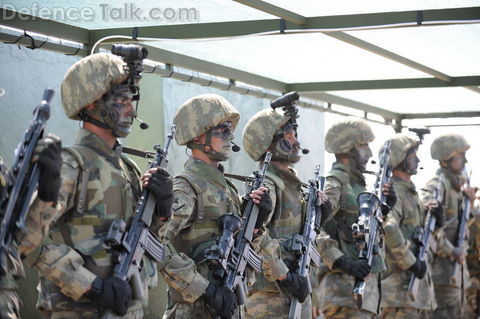MOGADISHU, Somalia — More than 500 Turkish military personnel have reportedly arrived in Somalia’s capital this week, according to Somali and diplomatic sources, as part of what regional analysts describe as Ankara’s deepening security footprint in the Horn of Africa nation grappling with a resurgent al-Shabab insurgency.
The deployment, which Turkish officials have not publicly confirmed, is believed to be the vanguard of a larger force of up to 5,000 fighters, including special operations units and contracted personnel.
The move has drawn muted but growing concern from Western governments, particularly the United States and the United Arab Emirates, both of which have long-standing security and development ties with Mogadishu.
Somali officials have welcomed the Turkish presence, framing it as part of an ongoing bilateral defense cooperation deal signed last year.
That agreement gives Turkey wide latitude to assist in rebuilding Somalia’s naval forces and securing its territorial waters, particularly along the strategic Red Sea and Indian Ocean routes.
“This is not just about training or support anymore,” said a senior Somali security official who spoke on condition of anonymity to discuss sensitive matters.
“Turkey is embedding itself more deeply — diplomatically, militarily, and economically — in ways we haven’t seen from other partners.”
Turkish influence in Somalia has grown steadily over the past decade, with Ankara funding key infrastructure projects, including roads, hospitals, and a military training base in Mogadishu.
The new deployment comes amid a string of deadly al-Shabab attacks targeting Somali forces and government officials, as well as an ongoing debate over the planned withdrawal of African Union peacekeepers by the end of 2025, with a new mission, AUSSOM is expected to take over.
Critics of the Turkish deployment warn it risks further complicating Somalia’s fragile political landscape and regional power dynamics.
“This level of military involvement could alienate other international partners who have invested heavily in Somalia’s recovery,” said a Western diplomat based in Nairobi.
“It also raises questions about Turkey’s long-term intentions.”
Ankara has not issued an official statement on the reported troop increase. Turkish officials have previously said their engagement in Somalia is rooted in mutual respect and development goals, not regional rivalry.
However. amid growing security tensions, Somali leaders appear to be betting on Ankara’s support to help stabilize a country still reeling from decades of conflict, while navigating the delicate balance of foreign influence shaping its future.



